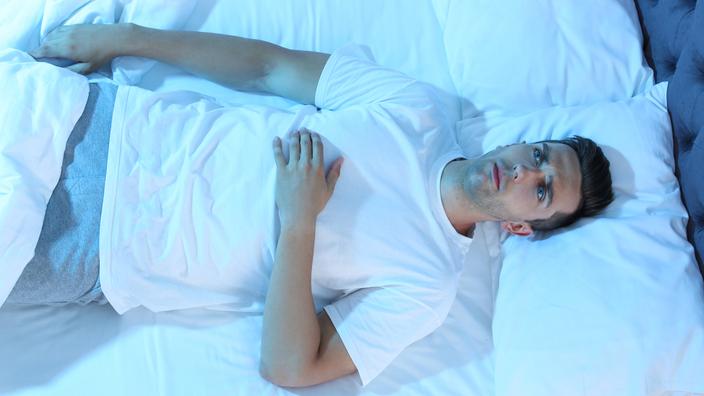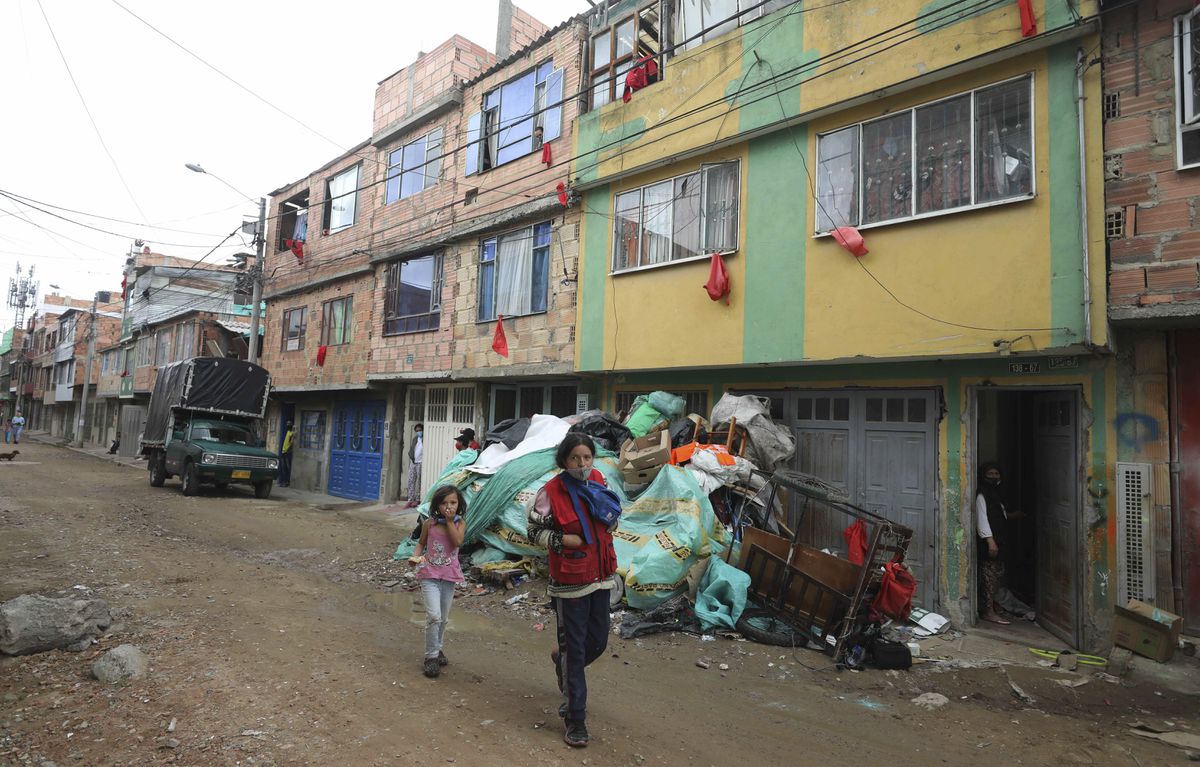The putting under the bell of the country twice in 2020 did not help the French to fall into the arms of Morpheus, on the contrary.
During the two confinements, the sleep of the French population was abused, according to the National Institute of Sleep and Vigilance (INSV).
Tuesday, March 16, his investigation pointed to a worsening of sleep disorders, caused by the epidemic.
Lack of sleep was already the “
evil of the century.
"We now fear the emergence of the phenomenon"
corona-somnia
», To use the expression taken from a British study of August 2020. While 21 million French people entered a third confinement, the INSV study showed that the first confinement caused sleep disorders among 70% of French people.
This figure fell during the second confinement, to still settle at 45% of the French.
To discover
Test, isolation: the procedure to follow in the event of a suspicion of Covid-19
Read also: Stress, sleep, vitality ... The Covid boosts sales of food supplements
Pauline, a 24-year-old Parisian, student, learning communication, believes that she did not have a beneficial sleep for many months, to the point of suffering from a lack of concentration: “
During the two confinements, I could no longer go. at the gym.
I had persistent fatigue, with waking up every hour.
With hindsight, I think that working and sleeping in the same environment was harmful,
”observes the young woman.
After a year of crisis, the psychiatrist, Sylvie Royant-Parola, also notes that "
anxiety and a complicated experience during confinement have brought new patients in consultation for significant sleep disorders, especially young people
".
Overload of work, loneliness ... Jessie, 31, an executive in Paris in the field of audiovisual production, has been plagued by restless nights.
“
In the 1st confinement, I was alone 24 hours a day, I worked a lot in my small Parisian apartment.
Due to the coronavirus, the shareholders of the company where I work were very stressed.
You had to face it.
I had trying nightmares every night,
”
the thirty-
something
told
Le Figaro
.
“
To unwind in the evening, I watched humorous videos before sleeping.
I also learned about relaxation therapy, but I didn't have time to get started,
”she adds.
Increased fatigue in women and mothers
Audrey, who became the mother of a premature baby during the second confinement, told
Figaro
, to be still facing very disabling sleep problems, for a year.
“Pregnant during the 1st confinement, I had great difficulty falling asleep and not waking up in the middle of the night.
The future was very scary.
We were in total vagueness.
Then, after giving birth, I could not rest in the maternity ward.
Due to the risks of Covid-19, I was allowed to visit my son in neonatal intensive care, only 4 hours a day.
Audrey tried to adopt good hygiene habits in order to improve her sleep, but to no avail.
"
It's not easy to take care of yourself, with all sports structures closed,
" she laments.
According to the scientist and sophrologist, Clémence Peix Lavallée, the first confinement for women was harsher than the second.
“
The management of school at home, meals, teleworking in front of a screen, anxiety-provoking news, have prevented women from sleeping.
Locked up with their families, they had no breath of oxygen during the day, nor any decompression chamber.
Emotions and body movement are essential aggregates for getting good sleep.
"
The shoemakers may be the worst shod, but the caregivers are the worst looked after.
"
Caroline, nurse
Caregivers have also been particularly affected by insomnia over the past 12 months, according to Hubert Bourdin, head of the sleep unit at Besançon CHU.
"
They are very busy, but there, they are in it, it is after that we risk seeing the submerged part of the iceberg with probably elements of the depressive register, and one does not exclude elements of the register either. post-traumatic
”, this doctor told France 3-regions.
Caroline, 27, a nurse at Sainte-Anne hospital, experienced it.
“
From the 1st confinement, I began to have severe sleep disorders.
Even going to bed early, I couldn't fall asleep until midnight one in the morning.
However, I got up at 6 am to go to work.
On my days off, I took medication to recover and keep going.
"
Despite his efforts, his sleep does not improve in a year.
A less toxic second confinement?
Sophrologist Clémence Peix Lavallée, receives every week in consultation, people "
in pain
" since the two confinements.
“
Between telework and excessive consumption of series, there was a disorder of the circadian clock.
The accumulated sleep debt creates additional anxiety and insecurity.
It's a vicious circle,
”notes the professional.
Read also: Insomnia: how to break the vicious circle
“
During the 2nd confinement, 23% of French people adopted a virtuous lifestyle for their sleep,
” according to the INSV.
During her consultations, the sophrologist confirms that several of her patients adopted virtuous behaviors during the last confinement.
“
Some French people have implemented a new lifestyle.
Get up at the same time every day, eat at a fixed time, expose yourself to light, avoid screens two hours before bedtime.
These are solutions to reduce sleep disorders.
Sleep is an education that must be relearned.
"









